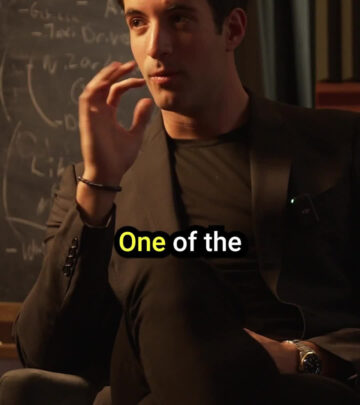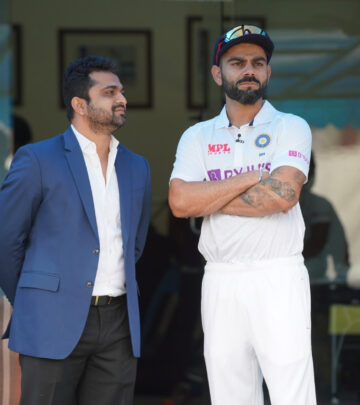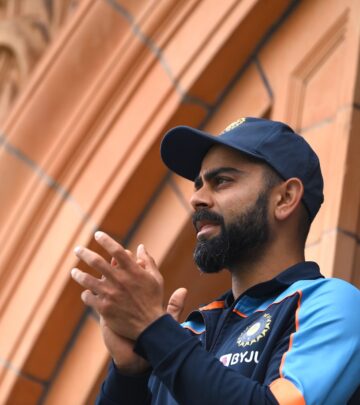Naftali Moses Explores Love And Imagination
Unveiling heartfelt romance while reimagining artful dreams in today’s digital era. Fully.

Image: Instagram
Naftali Moses, widely recognized as @naftalimoses, recently graced his Instagram feed with a post that brings into focus the delicate balance between romantic feelings and the creative mind. His caption, “Love doesn’t fail, your imagination did,” serves as both a provocation and a gentle reminder that the way we conceptualize love is as influential as the emotion itself.
A Thoughtful Expression On Modern Affection
In today’s digital landscape, expressions of sentiment often take the form of artistic musings and succinct captions that resonate more deeply than lengthy essays. Moses’ recent post encapsulates this trend. The captivating image, which features a moody yet aesthetically pleasing composition, invites viewers to pause and reflect on the interplay between genuine emotion and the fantasies we build around it. His choice of words implies that while love as an emotion remains pure, it is our imagination—our expectations and constructs—that sometimes leads us astray.
This message is particularly engaging in an era where social media amplifies personal narratives. Moses challenges his audience to question whether the ideal they hold for love might sometimes overshadow the love itself. His post suggests that the failures in relationships are not due to love being inherently flawed, but rather the unrealistic standards set by our inner visions.
In Conversation With His Digital Persona
Beyond the striking image, Moses has a reputation for blending introspection with bold statements. This post is consistent with earlier content from his account. Past entries, such as the one where he posed “Do you know the value of what you give?” and another asking “What’s it like to be used?”, reveal a pattern. His work weaves a narrative that forces his followers to consider the deeper implications of human connection and self-worth.
The repeated thematic threads from his older posts not only highlight his commitment to exploring the intricacies of interpersonal relationships but also unveil a journey of self-discovery. For instance, one of his previous posts posed the question, “Is it a loss if you found yourself? Maybe you just lost everything that was in the way.” These reflective explorations underpin his provocative new caption, bringing a continuity that long-term followers find both reassuring and challenging.
Reimagining The Role Of Imagination
Naftali Moses’ use of the phrase “your imagination did” prompts viewers to re-examine how creative idealism can often distort reality. In a world where curated images and embellished lifestyles are the norms, his insistence on returning to authenticity is refreshing. His post becomes a commentary on the modern tendency to elevate fantasy over the natural, often messy, reality of love. The caption suggests that to work through the difficulties of relationships, one must first check the unrealistic narratives that are constructed in the mind.
Moreover, Moses’ artistic visual style complements the text perfectly. The image, shared from his Instagram account, features subtle hints of contrast between darkness and light, symbolizing the eternal dance between passion and perception. It is not merely a photograph; it is an invitation to delve deeper into the reasons behind our failures as lovers—not because love itself is flawed, but because our expectations have been warped by imagination.
The Social Media Impact And Cultural Resonance
Social media platforms nowadays serve as windows into the most personal facets of our lives. Moses’ post has sparked conversations among his followers, with many reflecting on their personal experiences and cultural perceptions of love. Comment threads and direct messages have been filled with introspective thoughts, indicating that his words have reached a chord beyond the surface-level appreciation of aesthetics. Many users applaud his honesty and the simplicity of his message, while others debate the influence of external narratives on personal relationships.
This discussion further emphasizes the broader cultural critique embedded in his work. In a digital age where countless influencers and celebrities define trends, Moses’ thoughtful critique stands apart. His work is less about showcasing a glamorous lifestyle and more about offering a space for genuine dialogue. By interrogating the role of imagination in love, he opens the floor to discussions about how modern relationships are often a construct of societal expectations and digital fantasies.
A Continuous Journey Of Self-reflection
Moses’ Instagram narrative is marked by a cadence of reflective statements that encourage self-awareness and personal growth. His approach is neither overly sentimental nor aggressively cynical; rather, it is a measured invitation to reassess the ideals that govern everyday interactions. Whether it is the recurring theme of questioning the worth of what one gives or the stark portrayal of vulnerability in love, each post is part of a larger dialogue about being true to oneself in a world that often demands conformity to idealized images.
This recent post, with its blend of visual artistry and incisive commentary, is a continuation of that journey. It not only reinforces his distinctive style of commentary but also aligns him with a broader movement in digital storytelling—one that values authenticity over perfection and encourages an exploration of the that lies beneath surface-level interactions.
Naftali Moses’ exploration of these themes provides his audience with more than just a fleeting moment of aesthetic pleasure. It challenges them to confront the contradictions in their own lives, to question the narratives that have been imposed upon them, and ultimately, to seek out a truer, less filtered form of connection. His work reminds us that sometimes what seems to fail is not the emotion itself, but the lofty ideas we attach to it.
As conversations around modern love continue to evolve on digital platforms, Moses’ thoughtful posts remain a touchstone for those striving to balance romance with reality. His message is a timely reminder: the trials of relationships may not stem from love’s natural course, but rather from the elaborate tales we spin around it.
Read full bio of Vidya Tadapatri


















